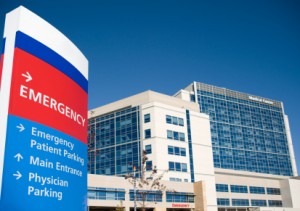GPS Clock Technology – How It Can Help Your Hospital
In the modern healthcare industry, medical services are on the rise as more and more scientific discoveries are found each day. Accordingly, there is a growing need in recording and tracking time-sensitive materials in this field. Modern technological advances have made overwhelming time information simple to record and easy to access, making inaccurate time telling a thing of the past.
Perhaps one of the most integral technologies that allow hospital facilities to function effectively and avoid making potentially disastrous time errors is Global Positioning Systems (GPS). Originally used as a military navigation tool, GPS has grown into a widely used technical instrument that is featured in many subsets of products including navigation, tracking and time telling.
GPS is a very precise recipient of location based on the use of earth-orbiting satellites and a form of triangulation through 3-dimensional space. The GPS receiver obtains its distance from these satellites based on the amount of time it takes the satellites to receive signals from each other and send data to it. This information is then used to deduce the receiver’s exact location on earth. A GPS receiver solely uses information it retrieves; it does not send data back out to satellites.
Not only do GPS satellites transmit locations but they also use their locations to infer extremely accurate time information. The receiver is capable of pinpointing its exact coordinates and uses that data to calculate time, taking into consideration its time zone and hemispheric location. This form of time telling is essential to keeping accurate time from anywhere in the world.
In the healthcare sector, keeping track of precise time to properly administer medications, perform surgery and assure that medical personnel are on-time is extremely important. GPS synchronization is an excellent solution for tracking time. Systems manufacturers, such as Sapling, have master clocks with GPS input that can synchronize with every clock installed within a building. With every clock up-to-date and running properly within a facility, daily activities can run smoothly without the unnecessary hassle of keeping track of which clocks run too fast or too slow.
With a GPS time source in place, Sapling allows users of its time keeping solutions to reap the benefits. Hospital staff can rest assured that the time the clocks display will remain extremely accurate based on the pinpointed location of the GPS receiver on earth. Because the GPS satellites are constantly transmitting data, drifting clocks will become a thing of the past.
And because GPS traces national and international standards by location, the clock system will not fail to recognize and adhere to the Coordinated Universal Time (UTC) based on International Atomic Time (IAT). This eliminates the human error that often occurs from the manual programming of a specific area’s time standards. Lastly, insurance companies can verify the time accuracy of a medical facility simply by using an online GPS resource or a GPS tool of their own to double check that the clock system time is in fact synchronized to GPS.
No matter what system your healthcare institution implements, be sure that all of the clocks run on synchronized time to avoid making incorrect time stamps. When an establishment relies on accurately documenting surgery durations, implementing medications and making appointments on time with patients, up-to-date clock systems are vital to ensure the functionality of all health services. The facility is left to function effectively and staff can focus on giving exceptional care to its patients without the worry of malpractice occurring due to an unreliable time source.
For more information, check out our SMA Series Master Clock.

